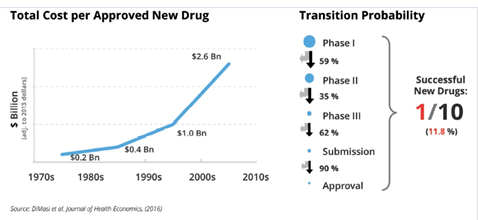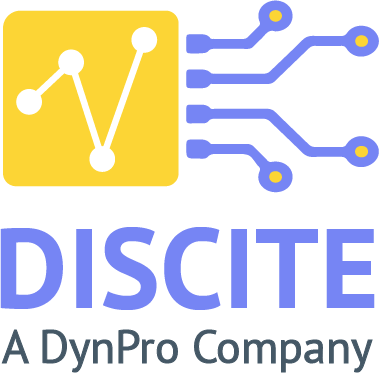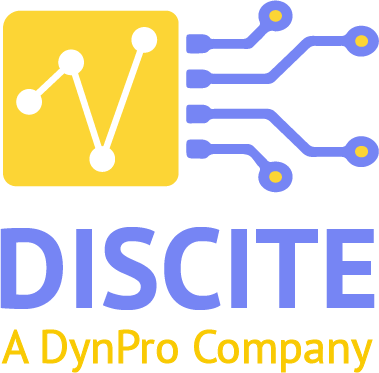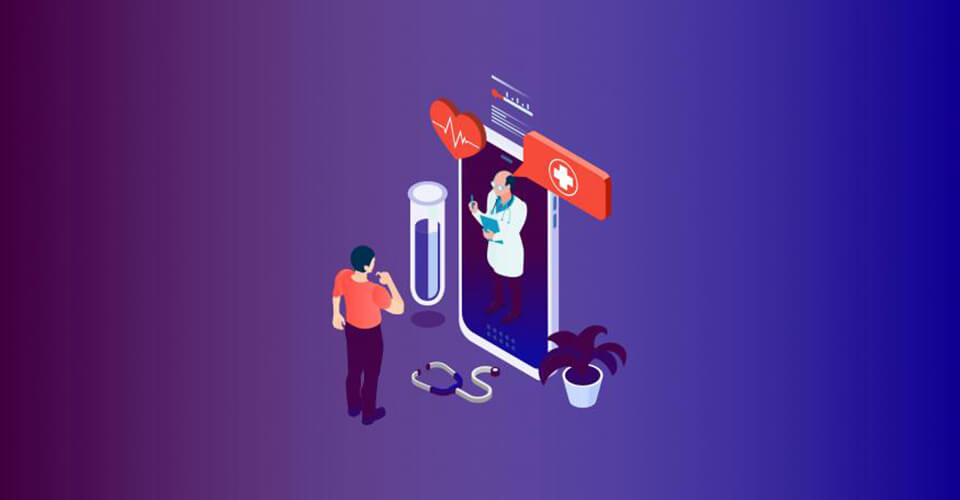Data Science in Pharma – Discite Analytics
Context
Today the world generates more data than ever before. In 2013, the total amount of data created, captured, copied, and consumed worldwide was reported to be around 9 zettabytes. According to some estimates by the end of 2020 the number has increased by 6.5 times to 59 zettabytes.
Here at Discite Analytics we consider data as the “new oil” and in our experience we have seen that the data driven companies that use integrated and advanced analytics outperform their competitors in every sector.
The pharmaceutical industry, too, has started acknowledging the might of data and using data analytics and AI to build business value and drive innovation.
Here are 5 key ways the Discite Analytics team can transform the pharmaceutical businesses

1) Accelerating drug discovery
There’s a huge cost in introducing a new drug to the market, and it has been increasing sharply over the past few decades. It was as high as ~$5 billion according to a Forbes report in 2013.

How can data analytics/science help?
By analysing the various patient health records, clinical trials data, scientific repositories and publications helps researchers gain insights and ideas about new drugs.
The process of synthesizing and testing thousands of molecules in order to achieve the right drug properties is very cumbersome and takes several years of research. But data analytics is transforming this process by helping researchers generate novel ideas rapidly and rank these ideas using predictive analytics over large datasets that are now available.
Analytics is also playing a key role in the science of synthesis prediction. It is helping in developing techniques to optimize the process of synthesizing molecules as potential drug candidates.
According to Werngard Czechtizky, head of medicinal chemistry, AstraZeneca, “Through AI, we have the potential to transform medicinal chemistry, augmenting traditional drug design with sophisticated computational methods to predict what molecules to make next and how to make them”.
Over the years the industry has recognized the implications of big data and machine learning in this domain and some companies like AstraZeneca, Celgene, Bayer, Janssen Research and development, Sanofi, and Memorial Sloan Kettering Cancer Center have started a data sharing initiative called Project Data Sphere where they have agreed to share data related to cancer research.
2) Clinical Trials
Clinical trials are probably the most frustrating part of the drug development process. They are lengthy, cumbersome and very costly.
But analysing a variety of data gathered from various sources can ease out the process by helping companies figure out the target population best suitable for testing the efficacy of the drugs. Also, the adverse effects of a drug on the participants are a matter of huge concern during a clinical trial.
Data science and analytics is helping researchers understand and keep track of the potential adverse effects of the drugs on the participants. This prevents a variety of serious side effects and even fatalities during the clinical trials of a new drug.
3) Usage of patient data to offer disease management solutions and healthcare tips
The importance of electronic health records (EHR) is getting acknowledged across the globe. The various health providers and governments across the world have started investing on maintaining a unified patient health record system.
This will help the pharma companies use data from patient healthcare records to offer tailored management solutions and healthcare tips to the registered patients regularly.
4) Using Big Data for Risk management
Practices like these can help identify risk factors, side effects and improve the drugs before any substantial damages are caused. The Pharma companies are still trying to come up with efficient ways of utilizing this enormous volume of unstructured data and are resorting to big data analytics to help find solutions.
5) Improving marketing and sales
Earlier the representatives from the pharma companies used to manually visit the physicians and the providers to promote their products. The drills would often be very lengthy and expensive.
But with the advent of data analytics there is a cognizable change in the trend. A survey has revealed that almost 25% of the pharma marketing is being conducted over digital platforms.
Investment is being made in monitoring attributes like a doctor’s interest of therapeutic methods, prescription rates and trends varying with regions etc. This form of targeted analytics is driving sales, optimizing expenditure and helping in generating targeted sales techniques which is leading to greater degree of success.
Additionally, the companies are getting their representatives equipped with smart mobile devices deployed with real-time analytics functionalities. The representatives can now frame their pitches to suit the physician and the sales team can analyse later if the approach worked.
How can Discite Analytics help you?
Well, then allow Discite Analytics to partner with you.
Here at Discite Analytics, we have a team of data scientists and engineers experienced in delivering data driven solutions and building products for Pharma giants.
With a deep understanding and hands on experience in implementing the latest techniques in analytics and the state-of-the-art AI functionalities we can help you extract the value out of your data and deliver end-to-end solutions that can save an enormous amount of money and time by automating manual/tedious tasks, predicting outcomes and prescribing data driven business strategies.


